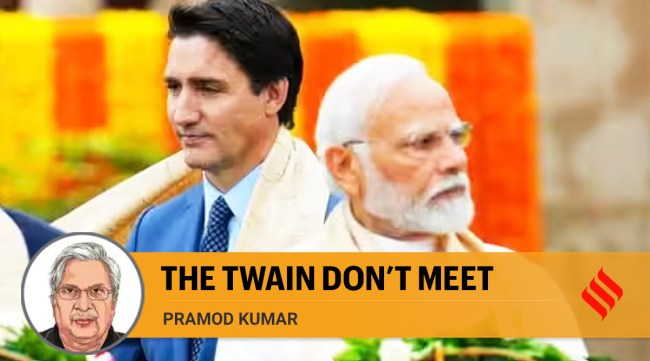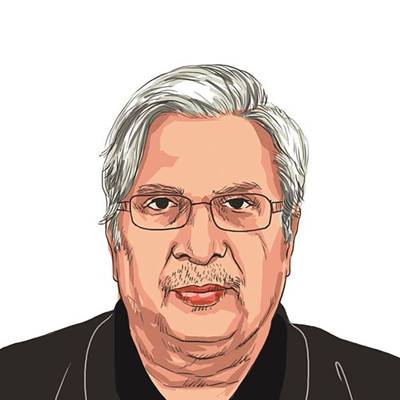Opinion Why the demand for Khalistan finds no echo in Punjab
Unlike Diaspora Punjab, Indian Punjab has nurtured a secular Punjabi identity which has coexisted with assertions of religiosity
 Articulation of Punjabi identity is yet to take off in Canada, and the diaspora remains either Sikh or non-Sikh. (File Photo)
Articulation of Punjabi identity is yet to take off in Canada, and the diaspora remains either Sikh or non-Sikh. (File Photo) The diplomatic row between India and Canada over the killing of a pro-Khalistan activist brought back a memory. It was the post-Blue Star year of 1989 and I happened to deliver a talk on the genesis of violence in Punjab in Montreal. My argument was that “the invasion of the sacred precincts of the temple complex left a trail of misery, violence and sense of hurt amongst members of the Sikh community, and among secular Punjabi Hindus. It blemished the stature of leaders like Indira Gandhi and Rajiv Gandhi. If Jarnail Singh Bhindranwale could not become an icon of the Sikh masses, the former prime ministers, held responsible for Operation Blue Star and the 1984 Sikh killings, got marginalised in the secular democratic civilisational matrix”.
After the talk, a young Indian-Canadian woman invited me home for dinner the next day. But soon after issuing the invitation, she retracted it, saying that her husband, a Sikh, had refused to dine with a Punjabi Hindu, as the latter, as per his information, never owned the Punjabi language, Punjabi culture and its history. My answer to her was that in Indian Punjab, not many Sikhs held that view as they believed and practised the teachings of the Gurus, which are inclusive. Those who believed the contrarian view were either ignorant or fanatics. This was at a time when terrorism was at its peak in Punjab.
Why do dramatically divergent views continue to exist in a section of diaspora Punjab and Indian Punjab?Metaphorically speaking, there are three Punjabs — Diaspora Punjab (settled in Canada, US, UK and Europe), Indian Punjab, and Pakistan Punjab. In Diaspora Punjab, the radical groups’ political narrative resonates with the Khalistan slogan and divisiveness on communal lines.
They function as an exclusive group. They are not integrated into Canadian society even as, politically, they are well entrenched and hold the balance of power, as in the present regime. The New Democratic Party (NDP) led by Jagmeet Singh is a pro-Khalistan group and is the fourth largest party which occupies a balancing position in the present coalition government.
In Diaspora Punjab, articulations of a distinct religious identity co-exist with assertions for a separate Khalistan. The younger generation of Canadian Sikhs has been socialised into the politics emanating from the tragic events of the 1980s. These events have been used as a source of justification for a politics of vengefulness. Fringe groups are actively engaged in making the brutal legacy go on simmering and regenerating itself.
In Indian Punjab, however, history has moved on. Operation Blue Star became a marker of the need for respecting religious groups instead of becoming a symbol of social divisiveness, the politics of religious dominance or assertion of a theocratic Sikh state. The hurt felt by the members of the Sikh community after four decades of churning seems to have transcended the boundaries of religion. In fact, there is a wider consensus on ensuring justice for the Sikhs killed in 1984.
Unlike Diaspora Punjab, Indian Punjab has nurtured a secular Punjabi identity which has coexisted with assertions of religiosity. For instance, 83.87 per cent of the Punjabi Hindus, as per the 1991 census, mentioned Punjabi as their mother tongue. The adoption of the Moga declaration by the SAD, emphasising Punjab, Punjabi and Punjabiat, was a testimony to the space available for a secular Punjabi identity. Simply put, Hindus in Punjab continue to exhibit dominant traits of Sikhism alongwith Arya Samajist values and Sanatan Dharma rituals. Both communities organically respond to Punjabi cultural traditions and Punjabiat.
On the other hand, articulation of Punjabi identity is yet to take off in Canada, and the diaspora remains either Sikh or non-Sikh. As a result, in Diaspora Punjab, the ruling establishment has provided space to the Sikhs, which has been appropriated by the vocal section of Khalistan separatists who continue to propagate a politics that advocates revenge for the “hurt Sikh psyche”. The political alliances are constructed with these elements, which is a death knell for liberal politics.
There is an urgent need to bring closure. But that can only come if it is based on the de-legitimisation of violence, reducing incentives for violence and delivering restorative justice.
The political controversy between the Canadian and Indian political establishments over the killing of Hardeep Singh Nijjar, threatens to add new dimensions to the ongoing separatist movement of the fringe. The issue of Khalistan had remained largely specific to Punjab and India in the 1980s. Now, the political narrative is being shaped by Diaspora Punjab, the separatist demand of a minuscule section is being internationalised. This is a matter of serious concern.
The Canadian political establishment rushed to accuse the Indian government without credible evidence even as the Indian establishment, instead of building consensus on the shared values of peace, acted undiplomatically. As a result, both countries took the hasty decision of suspending trade talks, clamping restrictions on human resource exchange and knowledge sharing avenues. This suspension of trade and restricted human resource mobility has serious implications for both the political establishments besides creating hardships for Indo-Canadians and Indians in general.
This politics will not only aggravate the crisis between two nations, but in the absence of market exchange and the leavening effects of secular Punjabi culture, could provide justification to socially divisive tendencies and create tensions among religious groups in Canada. On the contrary, in Indian Punjab, secular Punjabi identity has strong historical roots and co-exists with other identities while communalism is known for its long tongue but no teeth.
The writer is chairperson, Institute for Development and Communication (IDC), Chandigarh






